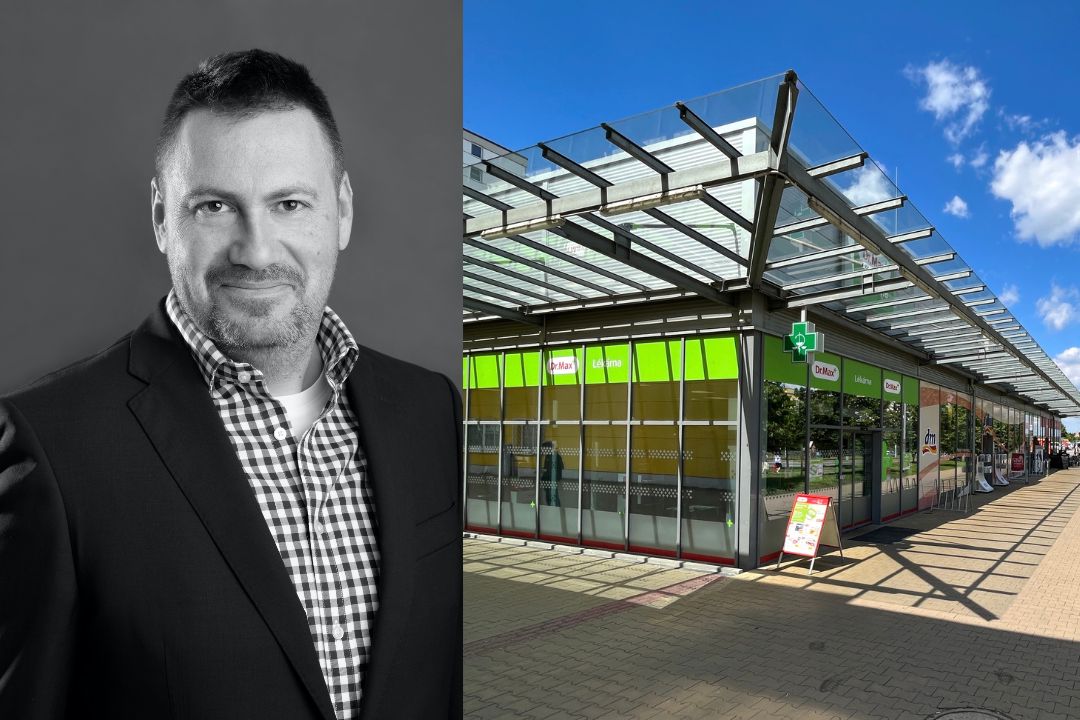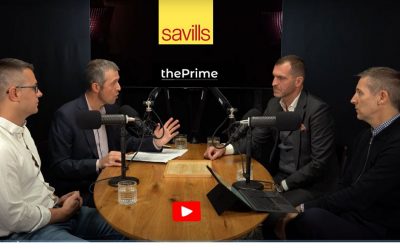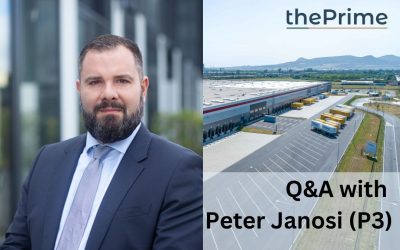Retail parks have been the flavor of the month since the pandemic for many investors, including new ones. How do you avoid overpaying in a hot sector?
We invest in retail parks because we understand them, because we have long-term experience in the business. It’s actually true what you say, that especially after COVID, everybody is in love with retail parks. Anyone who has a bit of money and can afford it would like to buy one. Ultimately, I still think that as with other real estate sectors, this one is for professionals. In the end this will prove to be true. From time to time, we’ll buy one from a private investor that had no previous experience with commercial real estate. They’re unable to work with the asset as well as we can. They don’t have the connection with tenants. They don’t know how to do the refinancing and so on. They can’t look around and see the potential future competition. Just like offices and shopping centers, this business is for professionals.
But those are lessons investors learn in the long-run. In the meantime, don’t they drive up prices to levels that aren’t interesting for you?
No, because we usually have some agreement with the developer. We don’t wait to see what’s on the market, so we don’t have to beat the other competitors. We agree on the transaction details two years before the deal happens in an exclusive agreement. It’s a binding agreement for both of us, in which the developers has to produce a retail park with a certain tenant mix.
So, the price you pay assumes a fully leased building and an average WALT?
Yes. We definitely demand over five years for the WALT. But I think the market is changing slightly. For example, now we have already agreed on three other transactions for next year. And the WALT is around seven years average.
When you say the market is changing, do you mean in the sense that tenants are willing to sign longer leases?
Yes, exactly. In fact, now we’re dealing with a developer on another project, probably for 2027, where they have signed up the food store for 10 years, a drug store for 7 or 8 years. So now for the overall average, you can quite easily get a WALT of seven years or longer.
Why is that? Are they more confident about the future? Or are they worried about rising rents?
They feel confident about the location, about the project and they want to secure the space for them for a longer period. It’s not the case for every project, of course, but we concentrate on the better ones.
Is space running out? Does space ever run out for building new retail parks?
I think we’re getting closer to the capacity of the market. Tenants still have a lot of expansion plans though and it’s tenants that drive expansion. That’s the information we’re getting from tenants, primarily from food store chains. Most of them want to expand. The question is whether a fund like ours will want to go into a village of 1,000 people. Because if the food store’s lease is going to expire in 7 or 8 years, I have to be sure I can prolong it or renegotiate with a new tenant. If you’re in a village with just 1,000 inhabitants, it’s more difficult to be sure.
It actually puts the store in a powerful position.
Exactly. But if I have a Billa, Penny or a Lidl in a city with 6,500 people, that’s okay for me. I can work with that.
You started the fund in 2020, so you must be coming up to some lease renewals pretty soon. There’s been a pandemic, a war and an inflation crisis in the meantime. How will the new leases compare to the renewals?
First of all, we’re not facing a wall of renewals because we buy the parks one-by-one. Normally we discuss whether there is a renewal period or lease agreement expires, we usually talk to tenant about 12 or 16 months prior to this expiration. So, we want to know their position, but finally we know the positions even after one or two years because we are really in touch with them. If they’re not making money, you know they’re not. We know it much, much earlier, so we are well prepared for the situation.
In general, though, I really feel that rents are going higher. With completely new leases, we have significantly higher rents. But if I compare it with the old rental agreements where we had indexation for the last two years, we’re not that far below actually. It’s higher with the new contract but not by that much.
Have high interest rates helped keep less-serious investors out of the market? You have to be far more careful about putting down equity these days.
Definitely. We use fixed rates for every single loan and from the beginning five years ago. That’s why for the last two years, the fund beat inflation. Not every fund managed that. Our financing costs remained nearly the same financing costs, but the rents went really high due to inflation. We generally borrow asset by asset. Recently, we completed two acquisitions directly from the fund equity and in December, I’m going to finalize another one using equity. Then perhaps in January we’ll refinance all three projects, so we can use the equity together with fundraising for more expansion.
You’re not active in Slovakia?
Not yet.
Meaning…
Meaning that we probably will be active because Czech Republic is getting smaller for us.
Your pace seems to be about 3-5 transactions per year. Is that right for you, or do you expect it to change?
It’s exactly as you’ve put it. Our tempo is of course related mainly to fundraising. But on the other hand, it’s related to what’s attractive on the market for us. So, if we buy like 3, 5, or maybe 6 retail parks a year, then we’re fine with it.
Also in ThePrime
Jan Mynář (Lexxus Norton): Value creation starts at the beginning
Szilárd Simon (PlanRadar): Construction is finally adopting digitization
PPP’s Czech future depends on D4, says Wilhelm (White & Case)






